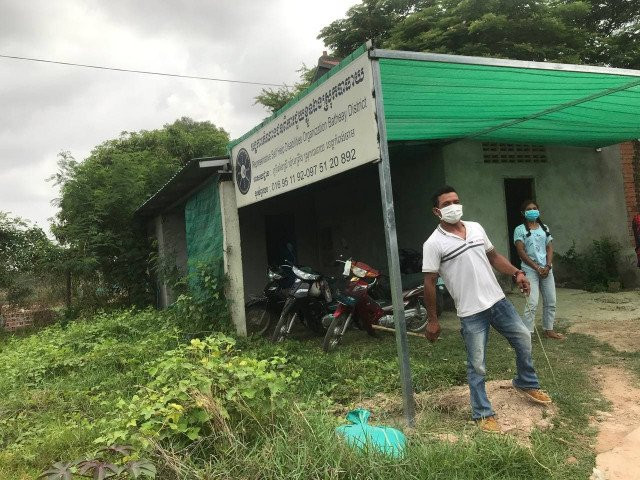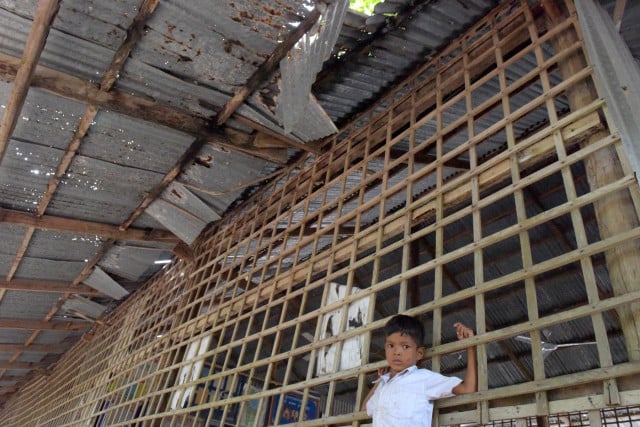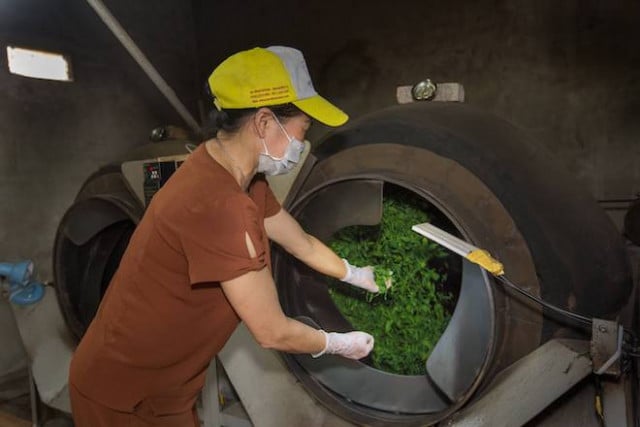People with Disabilities Need More Support in Accessing IDPoor

- By Lay Sopheavotey
- and Meng Seavmey
- February 23, 2022 6:09 PM
Meng Tong, himself a person with disabilities, is helping others like him to access the IDPoor program, but his work is limited to one district of Kampong Cham Province and more support is needed
PHNOM PENH--Meng Tong’s left foot has been paralyzed since birth, but this hasn’t stopped him from farming. However, in the wake of the COVID-19 pandemic, Tong set out trying to support other people with disabilities in Batheay District, Kampong Cham Province by teaching them agricultural skills and helping them to acquire IDPoor cards.
Last year, Tong took on the role of local coordinator with Representatives Self Help Disability Organization Batheay District (RSDOB), working at a grassroots level to help develop the livelihoods of people with disabilities in his community.
His teaching skills have helped him develop skills among people with disabilities, providing classes on raising chickens and ducks, growing vegetables and other practical skills.
The 35-year-old has been a keen defender of rights for people with disabilities and partners with local organizations and authorities to help ensure that people with disabilities aren’t left behind in Kampong Cham Province.
“I always take the problems of the disabled people that I have personally encountered and tell the organization, village and district, to help them,” he added.
Tong’s visits have helped to share knowledge, build skills and develop the community’s understanding of their rights and how to participate more actively in social events, but the COVID-19 pandemic has hit Cambodia’s most vulnerable hard and Tong has found new ways to support those with disabilities who often fall through the cracks.
He set out helping people with disabilities to access the IDPoor card—a form of social security pioneered in 2011 by the Cambodian government with support from the German and Australian governments. The IDPoor card has provided Cambodia’s Ministry of Planning with a means of identifying the most impoverished and vulnerable within communities, with the IDPoor card allowing the holder to collect money from a government-run cash transfer program.
The IDPoor program, while having come under fire in the past for corruption allegations among local officials tasked with identifying poor households, has proven instrumental in Cambodia during the COVID-19 pandemic, where hundreds of thousands of jobs across key economic sectors were lost. For many of those who benefit from the program, IDPoor is the difference between starvation and survival.
Recognizing the potential improvements to the lives of his community the program offered, Tong began travelling—despite his foot—to work with local authorities in identifying people with disabilities who are eligible for the IDPoor card. He said there are some 300 people with disabilities in his village alone and so far, he has supported more than 50 in getting an IDPoor card.
His legs hurt a lot, Tong said, but he added that he enjoys the work, knowing that he has helped people with disabilities to gain access to the financial support and free healthcare provided by the IDPoor card.
The COVID-19 pandemic has seen Tong’s family struggle too and his salary from RSDOB does little to help pay off the debt his family took on to survive, but Tong has helped his family to secure IDPoor cards from the government as well.
Now, he is committed to making sure that other people with disabilities also have the same support, but he has identified his own gaps in knowledge to better help the community.
“When visiting the disabled people within the community, it requires the preparation of reports and data, so I am planning to study accounting,” he said.
Having a family and three young children, Tong wants to continue learning accounting, and his organization will help and pay half the tuition fee to acquire new skills to help more people with disabilities in the province and the knowledge for himself.
According to the National Social Protection Policy Framework 2016 to 2025, people with disabilities, especially the poor, often face discrimination, along with physical and financial difficulties, making it more difficult for them to access healthcare, education and vocational training.
All of this creates a vicious cycle that keeps people with disabilities locked in poverty.
The government’s framework also has an aid program for people with disabilities which, besides the IDPoor program, places the responsibility of supporting people with disabilities on the government—although the level of practical support, according to the Law on the Protection and the Promotion of the Rights of Persons with Disabilities, fluctuates with the national economic situation, which has been dire these past two years.















